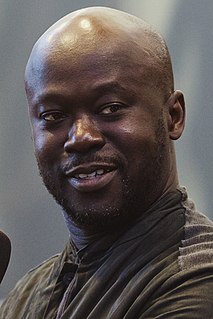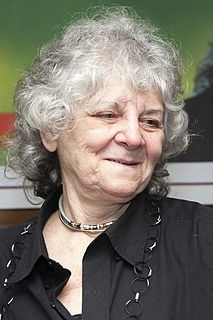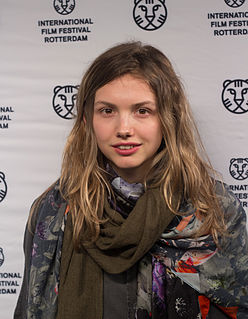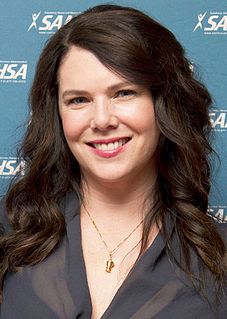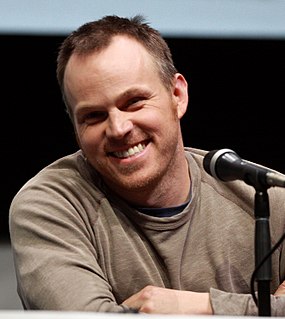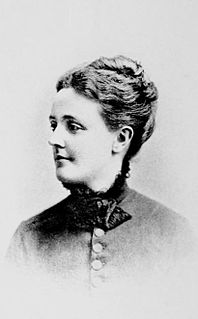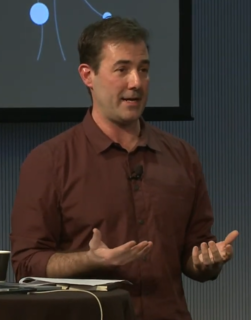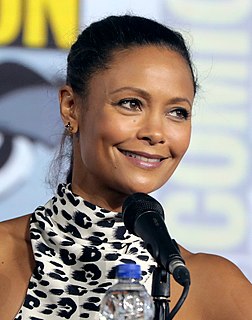A Quote by David Adjaye
In a way, I feel I have enough tools and knowledge now that when I build it has a very specific agency that's very conscious. It's no longer speculative; it's really constructed. I'm very interested in how that consciousness, about how I am producing, is working within different conditions. It's like growing up.
Related Quotes
To me, when one is writing sometimes about a very specific subject with very specific people, I feel like if that story doesn't cross over, it's not working. That's very beautiful to me, to be sitting in Berlin and there's an actor reading my book in German. I don't even know what's going on, except I know to feel my own rhythms in another language and say, "If this is going well, I think everyone should laugh around now." Then maybe there's laughter, and for me, it reminds me of how story can move around the world.
I am a writer who is definitely working with a specific language and more than English, that language is American. And I work very much in idiom and am very interested in the play of different kinds of rhetoric, whether it is the more high-flown stuff that reeks of age. I love to juxtapose something like that with something more current or urgent. I am always interested not in America by itself, but America as an idea and how that idea has changed over time, in the eyes of the rest of the world and in the eyes of Americans.
I write in spurts. I write when I have to because the pressure builds up and I feel enough confidence that something has matured in my head and I can write it down. But once something is really under way, I don't want to do anything else. I don't go out, much of the time I forget to eat, I sleep very little. It's a very undisciplined way of working and makes me not very prolific. But I'm too interested in many other things.
I like it when people are kind and I like people who are looking for collaborators. Sometimes you can feel like a moving prop, and that could be amazing, you can be a prop in somebody's incredible vision, but I'm more interested in people who are looking for actors they can collaborate with and make something together with. I like stretching myself, I like trying new things out, but I'm really interested in working with directors who have a very specific style and a unique way of working.
I feel real ownership in this show. I feel very invested in it. I care very much about it. I don't feel any more like a hired hand, you know? It's a strange feeling - I feel personally responsible for how the story goes. What happens. What the weaknesses are. And so in a way, some of the changes gave me an opportunity to have a voice in a different way.
I think it's really important, when you're redefining a character [ Spider-Man], for the audience to experience things that they haven't experienced, from the ground up. I wanted to build a character. I feel like point of view is a really crucial thing in the story, and that you need to build up the emotional building blocks, so that you can experience all the other emotions in a very specific way, rather than just experiencing it in an intellectual way.
Everything I make is with intention. I'm not very haphazard with my artist work, although I wish I was sometimes. I'm very conscious of the conversations I'm pushing about different threads and themes around landscape and characters that exist - how it's pictured, who's pictured it, who's owned it and who's been able to inhabit certain spaces. I have other interests as well. I'm really obsessed now with going to gay male dance clubs. I find those thrilling. I'm interested in what future characters can come.
These algorithms, which I'll call public relevance algorithms, are-by the very same mathematical procedures-producing and certifying knowledge. The algorithmic assessment of information, then, represents a particular knowledge logic, one built on specific presumptions about what knowledge is and how one should identify its most relevant components. That we are now turning to algorithms to identify what we need to know is as momentous as having relied on credentialed experts, the scientific method, common sense, or the word of God.
I've been different things in different contexts, and I didn't really feel beautiful until I had my first child. I knew that I was considered 'People' magazine's Most Whatever, but all that stuff is just how we label different groups. And I've been very not beautiful in my life. There's no way I was beautiful growing up.
